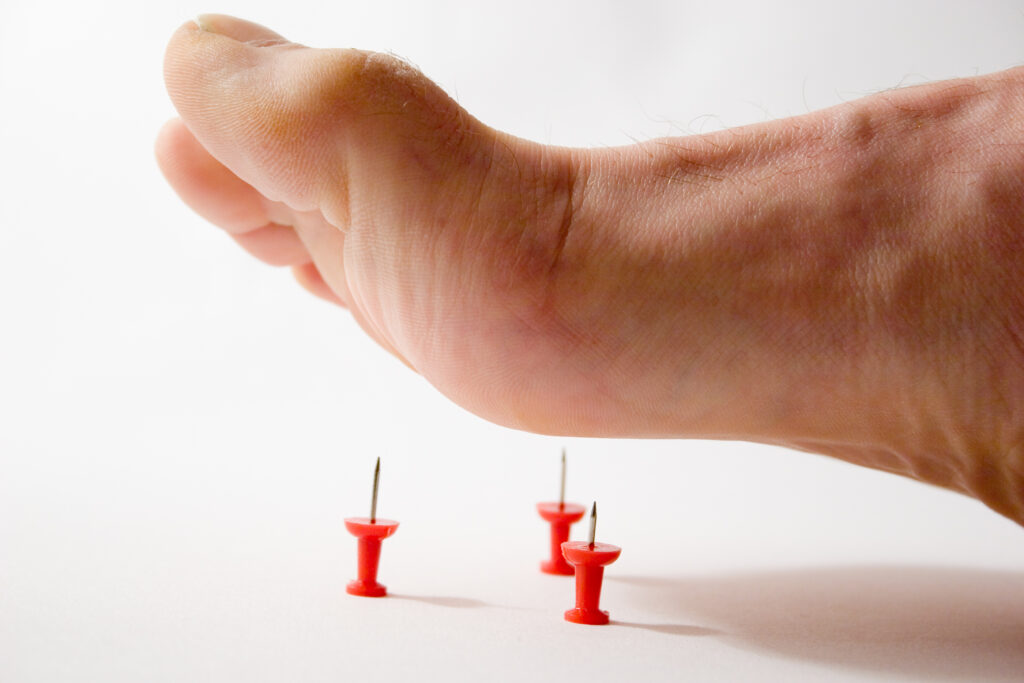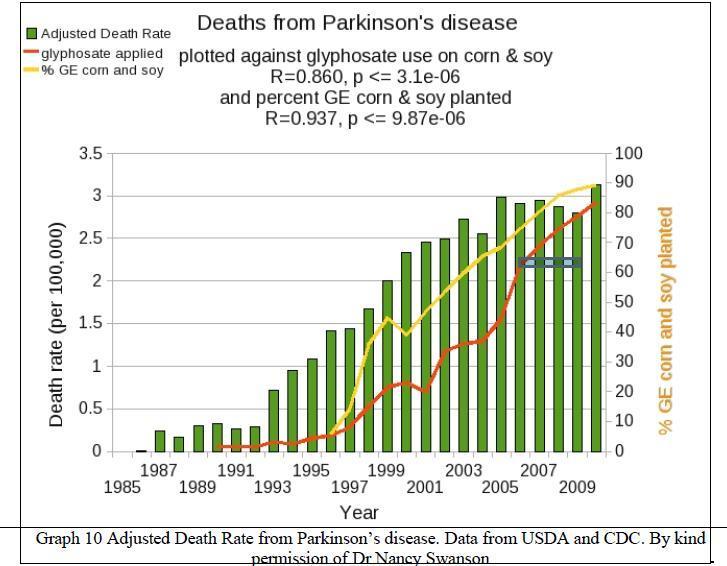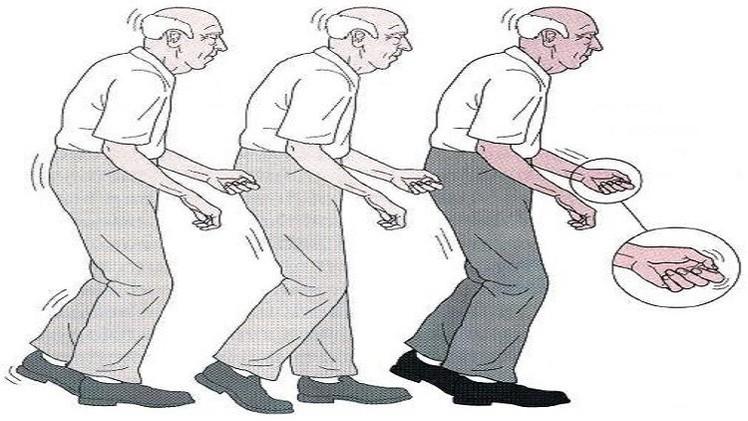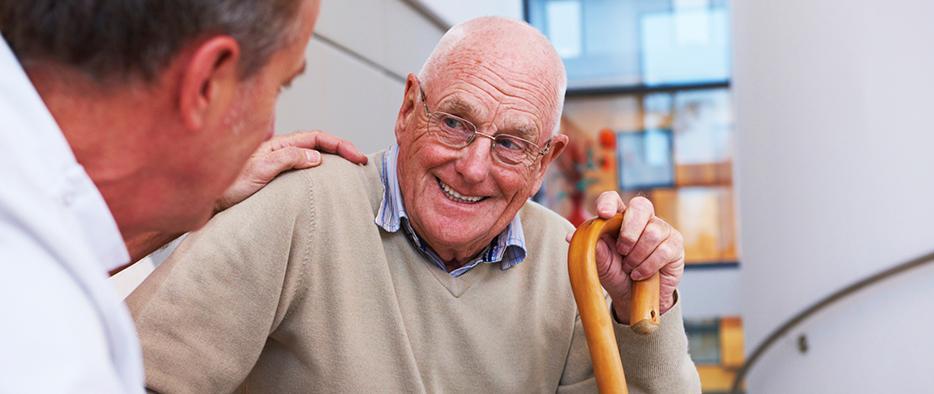 Over one million Americans live with Parkinson’s disease. An additional 100,000 are diagnosed with Parkinson’s disease each year, with countless cases unreported. Worldwide, 7 to 10 million people live with Parkinson’s disease. Men are 1 1/2 times more likely to get Parkinson’s than women. Neuropathy is a disease that affects an estimated 20 million Americans, and 60% of diabetics suffer from it. Both Parkinson’s and Neuropathy are neuro-degenerative diseases involving the brain and peripheral nervous system. Although great progress has been made by the pharmaceutical industry to develop medications to reduce discomfort, unfortunately few resources have been devoted to learn the true causes or how to prevent nerve degeneration. Both maladies are called “idiopathic,” meaning their true cause is unknown.
Over one million Americans live with Parkinson’s disease. An additional 100,000 are diagnosed with Parkinson’s disease each year, with countless cases unreported. Worldwide, 7 to 10 million people live with Parkinson’s disease. Men are 1 1/2 times more likely to get Parkinson’s than women. Neuropathy is a disease that affects an estimated 20 million Americans, and 60% of diabetics suffer from it. Both Parkinson’s and Neuropathy are neuro-degenerative diseases involving the brain and peripheral nervous system. Although great progress has been made by the pharmaceutical industry to develop medications to reduce discomfort, unfortunately few resources have been devoted to learn the true causes or how to prevent nerve degeneration. Both maladies are called “idiopathic,” meaning their true cause is unknown.
This article focuses on recent scientific research to isolate the actual roots of these two maladies, which interestingly have many of the same causes. It outlines the most effective ways to prevent them and maintain your health.
 When doctors don’t know what causes these diseases,
When doctors don’t know what causes these diseases,
they’re called idiopathic.
What is Parkinson’s Disease?
Parkinson’s disease (PD) happens when nerve cells in the substantia nigra central area of the brain are damaged and can no longer produce dopamine, a nerve-signaling molecule that helps control muscle movement. People with PD have a variety of symptoms including loss of muscle control, trembling, and lack of coordination. People may also experience anxiety, constipation, dementia, depression, urinary difficulties, and sleep disturbances. Over time, symptoms intensify.
Symptoms of PD include the characteristic hand tremor, slow movement, slurred speech, small handwriting, accelerating small steps when walking, rigidity, decreased facial expression, poor balance, poor reflexes including blinking and swallowing, sleep disturbance, anxiety, depression, difficulty thinking, constipation, and skin problems.
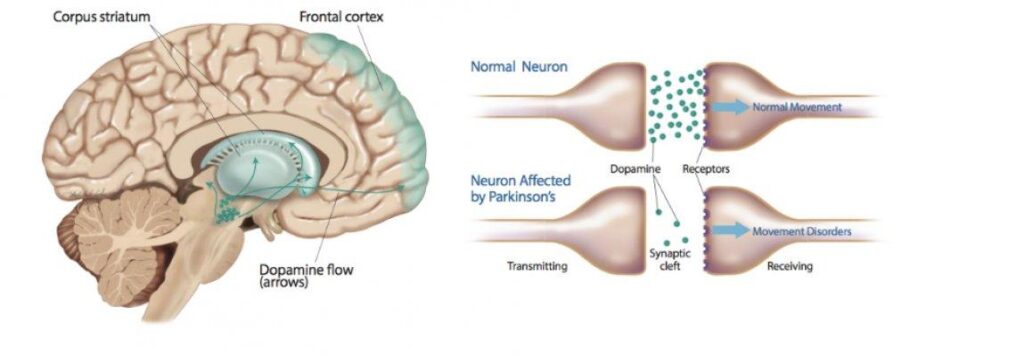 In Parkinson’s disease, dopamine-producing cells of the substantia nigra region of the brain basal ganglia slowly die. These cells normally produce dopamine, an essential neurotransmitter.
In Parkinson’s disease, dopamine-producing cells of the substantia nigra region of the brain basal ganglia slowly die. These cells normally produce dopamine, an essential neurotransmitter.
What is Neuropathy?
Peripheral neuropathy is a degeneration of the peripheral nervous system, the vast communication network that exchanges information between the brain, spinal cord, limbs, and every part of the body. Nerves are categorized in three groups: 1) Nerves in the skin that indicate temperature, pain, or touch, 2) Motor nerves that control muscle movement, such as lifting your arm, and 3) Autonomic nerves that control internal functions such as blood pressure, heart rate, digestion and organs.
There are hundreds of different kinds of Neuropathy. Symptoms include burning, tingling, weakness, numbness, paralysis, and dull to excruciating pain -pain, especially in the extremities. Damage to internal nerves may also impair digestion, sweating, sexual activity, urination, and organ function. Like static on a telephone line, peripheral neuropathy can distort and interrupt messages between the brain, spinal cord, and the rest of the body.
In diabetic neuropathy, the most common form of peripheral neuropathy, nerve damage happens in an ascending pattern. The first nerves to degenerate are the fingers and toes the farthest from the brain and the spinal cord. Pain and numbness may be symmetrical in both feet, gradually progressing up both legs. As the disease continues, fingers, hands, and arms may be affected.
Chemotherapy-induced neuropathy is common, and it can continue even after chemotherapy is over.
A common symptom of Neuropathy is painful, prickly sensations in feet and hands. Ouch!
15 of the Most Common Causes of Parkinson’s and Neuropathy
Although specific nerve degeneration is different in Parkinson’s and Neuropathy, both diseases have the same causes across the general population. Slow bio-accumulation of toxins in the body for years, if not sufficiently flushed, results in nerve degeneration. Risk of these diseases depends on one’s overall toxic load and general level of health. There are many individual factors such as where you live, level of exposure, diet, gut health, and exercise.
- Pesticides, herbicides, and fungicides are the #1 primary cause of both maladies. People in agricultural areas are far more likely to suffer from nerve degeneration. Glyphosate herbicide from Roundup by Monsanto is a primary offender, however all insecticides have a very damaging effect on the human nervous system (such as ?-hexachlorocyclohexane or B-HCH and rotenone). It is perhaps understandable that chemicals that cause nerve death in insects might have a negative effect on the human nervous system over time. Several courageous scientists from MIT and other universities have directly correlated the increase in deaths from PD to the increased use of Glyphosate in the graph below.
Graph shows Parkinson’s deaths (green) correlated to use of Monsanto’s Glyphosate on crops (red), and increased consumption of GMO corn and soy (yellow) in the USA from 1985 to 2009.
- Aluminum is a major cause of nerve degeneration. The #1 source of aluminum for most people is aluminum cookware used in most restaurants. #2 is vaccines; #3 is aluminum cans. Other common sources of aluminum include aluminum foil, home cookware, baking pans, aluminum silverware, deodorants, prescription drugs, lipstick, cosmetics, frozen food containers, to-go containers, toothpaste, lotions, sunscreens, shampoos, and espresso-makers.
- Mercury is a primary cause of nerve damage. Mercury concentration kills brain cells. The #1 source of mercury is dental amalgam fillings. #2 is fish consumption, followed by thimerosal-containing vaccines, and mercury pollution from coal-burning power plants.
- Vaccines cause nerve degeneration. Commonly used heavy metals in vaccines are aluminum, mercury, cadmium, lead, and arsenic. While it is possible that vaccines may help prevent a particular disease, heavy metals substantially increase risk of Parkinson’s and Neuropathy.
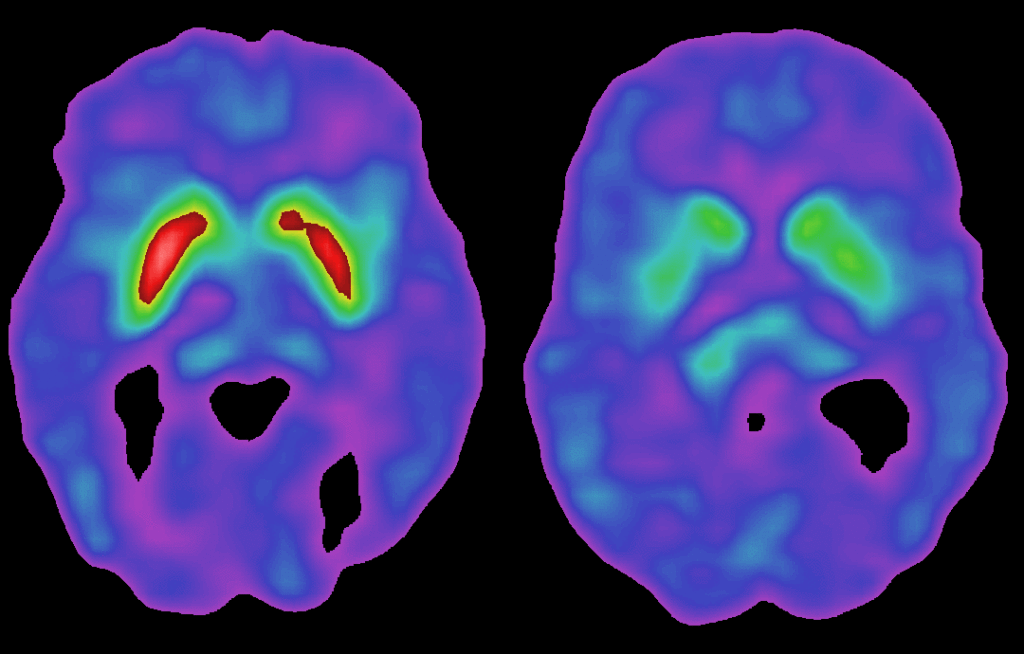 Left, a healthy brain with normal dopamine activity.
Left, a healthy brain with normal dopamine activity.
Right, a brain with Parkinson’s showing disrupted dopamine signaling.
- Gut micro-biome imbalance is a top cause of nerve degeneration. The gut and the brain exist in an intimate, bio-directional relationship. The enteric (digestive) nervous system (ENS) is part of the autonomic nervous system (ANS), sort of like a brain-in-the-gut. So the gut affects the brain and the brain affects the gut.
- Research shows a strong connection between gut dysfunction and Parkinson’s. One of the very first symptoms of PD is constipation. Studies indicate that the intestinal micro-biome, the gut flora, is altered in PD, and the particular types of bacteria in the stool of PD patients are very different from non-Parkinson’s patients. Parkinson’s patients have greater intestinal permeability i.e. leaky gut. Studies show that 25% to 55% of Parkinson’s patients have small intestinal bacterial overgrowth (SIBO), which accompanies a loss of movement, and that eradicating SIBO improves the condition. However sadly, relapse is all too common.Neuropathy disrupts the gut muscles, resulting in bowel obstruction. Neuropathy patients may start with irritable bowel symptoms (IBS), and gradually degenerate into full bowel obstruction.
Symptoms of Parkinson’s disease include a hand tremor, slow movement, slurred speech, small shuffle steps when walking, rigidity, reduced facial expressions, and poor balance.
7. Other toxins and heavy metals can cause Parkinson’s or Neuropathy: Recreational drugs (such as cocaine and amphetamines), pharmaceuticals (phenothiazines and metoclopramide), solvents (toluene, hexane, and trichloroethylene or TCE), chemicals in new homes, carpets, fabrics, clothes, children’s toys, hair dyes, paint, glues, furniture, alcoholic beverages, and smoking. People living or working near toxic industrial areas are more likely to suffer nerve diseases. Examples of this can be seen in specific areas of China, Albania, and India.
8. Fluoride is extremely toxic. Approximately 67% of Americans drink fluoridated water. Numerous studies have shown that fluoride causes brain damage and lowers IQ. Magnesium deficiency increases fluoride toxicity. Monsanto’s Glyphosate can also bind zinc and manganese, making fluoride even more poisonous.
9. High blood sugar causes damage to the walls of the blood vessels, causing poor circulation to the nerves in the hands and feet, leading to nerve damage. One study reported that 50% to 80% of patients with Parkinson’s disease have abnormal blood sugar.
10. Statin drugs for lowering cholesterol may increase the risk of Parkinson’s by 230%. Another study found statin drugs caused damage to peripheral nerves when taken for 2 or more years. Other studies link statin drugs to nerve damage in peripheral neuropathy. Frequently statins are quite effective in lowering cholesterol levels, but the side effects often manifest a year or two later.
11. Diabetes. A recent Finnish study of over 50,000 people showed that Type 2 diabetes is associated with higher risk of Parkinson’s, and diabetes is a clear risk factor for all nerve diseases. In the USA, Neuropathy is the primary cause of diabetic foot problems and ulcers. About half of people with diabetes have diabetic neuropathy. Poor blood circulation can make the feet less able to feel sensations, to fight infection, and to heal. Diabetes causes blood vessels in the feet and legs to narrow and harden. Diabetic neuropathy also increases risk for amputation. Over 86,000 amputations are performed every year, more than half of them due to diabetic neuropathy.
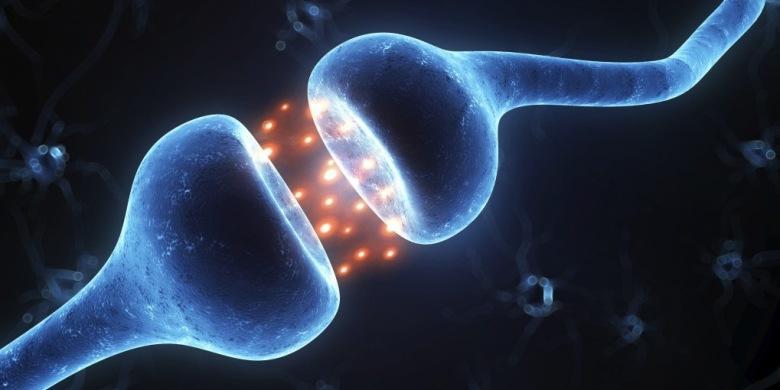
- Vitamin B deficiency. Low vitamin B12 (folate) may cause nerve damage and peripheral neuropathy, and has been linked to Parkinson’s and peripheral neuropathy. A vitamin B6 deficiency can aggravate or even cause neuropathic pain.
- Magnesium deficiency. Magnesium protects nerves against damage by pesticides. It plays a role of balancing calcium in the bones, preventing excess calcium from leeching into soft tissue. Low magnesium levels have been found to increase fluoride toxicity.
 14. Stress. Constant stress exacerbates and intensifies all the combined causes of Parkinson’s and Neuropathy. Stressful periods often precede an onset of these neurological diseases.
14. Stress. Constant stress exacerbates and intensifies all the combined causes of Parkinson’s and Neuropathy. Stressful periods often precede an onset of these neurological diseases.
15. Lack of Movement is a primary cause of Parkinson’s and Neuropathy. If you don’t USE it, you LOSE it. Aerobic movement is necessary for blood circulation and flushing toxins.
Preventing Parkinson’s and Neuropathy
While reversing these diseases is considered impossible, a few brave souls have self-healed and have found a life with no symptoms whatsoever. Here’s how to prevent or reverse these diseases.
- Reduce Your Toxic Load – Learn the causes of nerve degeneration that are all around you, so you can live mindfully in the modern world. Avoid all toxins, pesticides, sugars, GMO foods, and processed foods. Oxygenate your cells, reduce inflammation, and dispel free radicals. Live clean. Detox your body constantly. Eat 100% organic. Yes it may cost a bit more, however over time you’ll rake up vast savings on health costs.

- Your Aerobic Exercise Program – John Pepper, a business owner in South Africa successfully eliminated his Parkinson’s symptoms completely. In his amazing book “Reverse Parkinson’s Disease” he describes his program of gradually increasing walking to 15 miles per week, clean diet, and slowly eliminating medications. His “mindful walking” program is used effectively by thousands of people with Parkinson’s. He is now symptom-free. He attributes his success to living with new awareness and “Learning how to take conscious control of all movement.”

John Pepper’s instructions for “mindful walking”.
- Manage Stress – Eliminate the stress points you can, and manage the rest carefully.
- Clean Diet & Environment – Study your diet and environment carefully to reduce toxins. If your water is fluoridated, get a good filter for bath and shower water too.
- Balance Your Gut and Lifestyle – Enjoy life, eat, sleep well, and make adjustments to live in harmony with your inner needs. Eat lots of fermented veggies to balance micro-biome. Read these breakthrough books about the plasticity of the brain by Norman Doidge MD: “The Brain’s Way of Healing” and “The Brain that Changes Itself.”
- Attitude – John Pepper’s successful healing from PD includes increased awareness of emotions and attitude. Read his book “Reverse Parkinson’s Disease.”
- Conscious Movement – Movement such as Qigong and Taichi can help to maintain energy flow in the meridians and nervous system. A regular program of these movements can increase muscle strength, balance, quality of life, mental well-being, and reduce the risk of falling.
- Acupuncture – World Health Organization (WHO) scientists discovered that acupuncture protects dopamine neuron levels in the substantia nigra portion of the brain. Stimulation of acupoints GB34 and LV3 prevents dopamine depletion by sustaining tyrosine hydroxylase levels. Acupuncture point LV3 is also used to treat tremors of Parkinson’s disease.
- Supplements to consider:
- Alpha Lipoic Acid is said to combine synergistically with Acetyl-l-carnitine, Coenzyme Q10, and Melatonin supports energy metabolism to reduce oxidative stress and raise defenses against nerve damage.
- N-Acetyl Cysteine is said to help detoxify the body by helping produce glutathione. It can be taken with Acetyl-l-carnitine, but not at the same time of day. Check this link for details.
- Magnesium soothes the nervous system. The recommended dosage is 800 mgs in two divided doses.
- B-complex vitamins 100 mgs per day are recommended, but no more than that.
- A diet high in flavonoids from berries may lower the risk of Parkinson’s by 40%.
- Check your supplements carefully to be aware of any contra-indicated combinations.
- Medication – If you are diagnosed with Parkinson’s disease, John Pepper suggests an MAO-b Inhibitor as your only medication for PD.
Jane’s treatments for Parkinson’s and Neuropathy
Kinesiology can give you immediate answers to your questions. In a single session, applied muscle testing combined with intuitive reading can clarify the specific causes and particular toxins you need to address to heal your nervous system. Even further, kinesiology can indicate the most important diet and lifestyle changes to bring your health back into balance. For more information, read about Jane’s treatments.
Walk your way to a healthy nervous system. But do not hold a bottle of water in your hands. Keep shoulders back and let your arms swing naturally at your sides.
Resources:
http://www.ncbi.nlm.nih.gov/pmc/articles/PMC1761054/pdf/nihms12138.pdf
http://www.parkinsonsandfluoride.com/evidence-table.html
http://www.ninds.nih.gov/disorders/peripheralneuropathy/detail_peripheralneuropathy.htm
http://care.diabetesjournals.org/content/30/4/842.full
http://www.ncbi.nlm.nih.gov/pubmed/10912473
http://www.medicalnewstoday.com/articles/147963.php
http://www.parkinsonsandfluoride.com/a-potential-cure–my-personal-story.html
http://www.ncbi.nlm.nih.gov/pmc/articles/PMC4093745/
https://proteinpower.com/drmike/2007/02/02/statin-panic/
http://innereye.eu/nuts/tag/stephanie-seneff/
http://www.naturalnews.com/041034_pesticide_exposure_Parkinsons_disease_brain_function.html
http://www.naturalnews.com/034287_Parkinsons_disease_natural_remedies.html
http://www.naturalnews.com/034719_Parkinsons_marijuana_magnesium.html
http://primaldocs.com/members-blog/thoughts-on-parkinsons-disease/
http://www.viewzone.com/parkinsons.html
http://high-fat-nutrition.blogspot.com/search/label/Parkinson%27s%20disease
http://usatoday30.usatoday.com/news/health/2006-05-14-diet-treatment_x.htm
http://www.progressfocused.com/2015/02/moving-parkinsons-symptoms-away.html
http://www.naturalnews.com/045418_flu_shots_influenza_vaccines_mercury.html
http://www.amazon.com/Reverse-Parkinsons-Disease-John-Pepper/dp/1434983536



